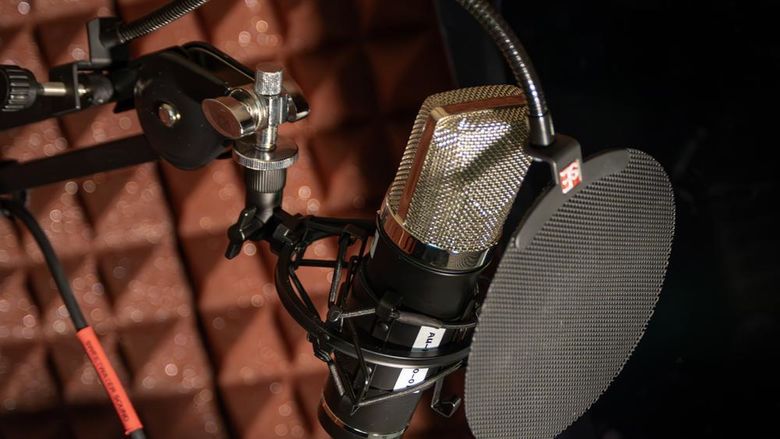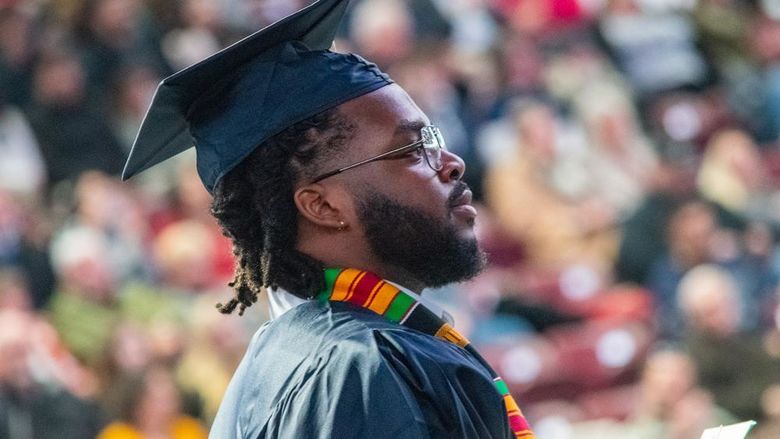MIDDLETOWN, Pa. — A survey recently conducted by the Center for Survey Research at Penn State Harrisburg’s Institute of State and Regional Affairs has found that Pennsylvanians are divided over the role firearms play in making schools safer.
Based on the results of the survey, given this division and Pennsylvania’s school district system — which emphasizes local control — developing a statewide school safety policy that allows school officials to carry firearms on school property could prove challenging, according to Emily Strohacker, assistant professor of criminal justice in Penn State Harrisburg’s School of Public Affairs.
The fall 2022 Lion Poll, administered by the Center for Survey Research, examined 1,039 adult Pennsylvanians’ attitudes toward arming teachers and other school officials and the perceived role guns play in making schools and homes safer. The survey found that half of Pennsylvanians polled (50.3%) support allowing teachers or other school officials with appropriate training to carry guns at school, but fewer (35.8%) believed that allowing teachers to carry guns would actually make schools a safer place to be.
Strohacker explained, “The data suggest that arming teachers may not make a majority of Pennsylvanians feel better about school safety. This finding largely mirrors the attitudes of the nation — as national polls have found divided support.”
According to the poll results, people who identified themselves as men, Republicans, and those who reported a conservative political ideology were more likely to support teachers carrying guns at school, than women and those with other political affiliations and ideologies. Similarly, the poll indicated that self-identified Republicans and conservatives were more than twice as likely as those with other political affiliations and ideologies to indicate a belief that guns would make schools safer.
Pennsylvanians who lived in rural zip codes were also more likely to say that arming teachers would improve school safety than those in urban communities. Strohacker suggested that if Pennsylvania law were changed to allow firearms to be carried by school personnel, adoption might vary considerably at the school district level if local residents have a say.
Attitudes toward gun safety in homes and schools differ
The same survey found that one-quarter of Pennsylvanians (25.4%) believed that guns make homes "safer" places to be while also saying that arming teachers would make schools more "dangerous" places to be. Specifically, women were 1.6 times more likely than men to believe that guns make homes — but not schools — safer.
Further, while the majority of conservative respondents (52.8%) believed that guns make both schools and homes safer, a quarter of the conservative sample (25.8%) felt that guns made homes safer but not schools. In comparison, 31.2% of moderates and just 12.1% of liberals believed that guns make both schools and homes safer, while 29.1% of moderates and 18.5% of liberals felt that guns make homes safer but not schools.
The survey showed that attitudes also varied by geographical location and age. Pennsylvanians in rural zip codes were more likely to report that guns make both schools and homes safer (46.4%), while respondents in urban zip codes reported that guns made both schools and homes "more dangerous" (41.0%). In addition, respondents aged 18 to 34 were more likely to report that guns make homes safer but not schools, while those 65 and older were more likely to say that guns made both locations more dangerous.
Strohacker suggests that differences in experiences might be influencing these attitudes: “School safety measures have significantly increased over the years since Columbine and the Sandy Hook school shootings, with the additions of resource officers, metal detectors, and even active school shooter drills. Younger individuals who have lived experience with these measures being incorporated into schools may have different opinions and beliefs about how arming teachers might make them feel more or less safe at school than older age groups who do not share this lived experience.”
Gun ownership influences attitudes
Survey results indicated that gun ownership was a significant predictor of attitudes toward arming teachers and school safety. Participants who indicated they own at least one firearm were more likely than those who did not own a gun to believe that having teachers or school officials carry guns would make schools a safer place to be. Motivations for gun ownership were also associated with positive beliefs about teachers carrying guns; for example, Pennsylvanians who reported that the guns in their household were owned for personal protection were more likely to believe that having school officials carry guns would make schools safer, though owning guns for hunting or target practice was not significantly associated.
About the Lion Poll:
The Lion Poll is an omnibus survey conducted by the Center for Survey Research at Penn State Harrisburg’s Institute of State and Regional Affairs. The purpose of the Lion Poll is to provide timely and accurate data to agencies, organizations, and researchers with statewide interests and responsibilities. Sponsors of CSR’s omnibus polls have used their results to track public policy issues; measure general attitudes, awareness, and knowledge of their organizations; and measure satisfaction with organizational services and performance.
For this poll, a total of 1,039 self-administered web surveys were completed by adult Pennsylvanians between Aug. 30 and Sept. 19, 2022. The Lion Poll used a quota-based invitation system to produce a final dataset that is representative of Pennsylvania’s population by region and, separately, by age/sex combined categories. The Lion Poll’s margin of sampling error is +/- 3.0% at a 95% confidence level.
For more information about the Lion Poll, visit the Center for Survey Research at Penn State Harrisburg or contact Tim Servinsky at the Center at 717-948-4323 or [email protected]. See the complete Lion Poll methodology here.




